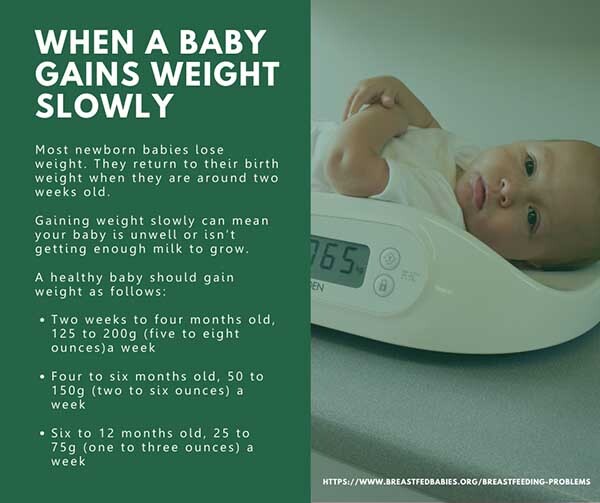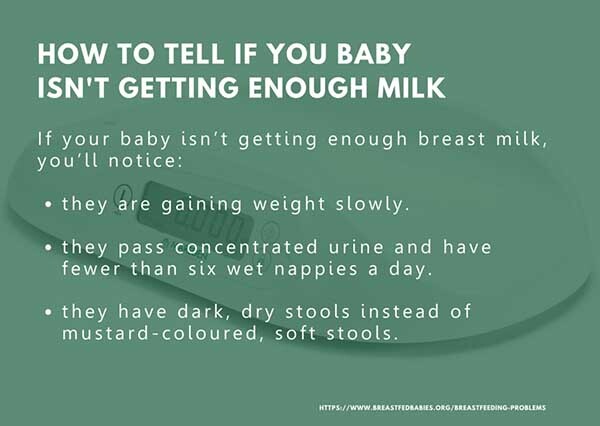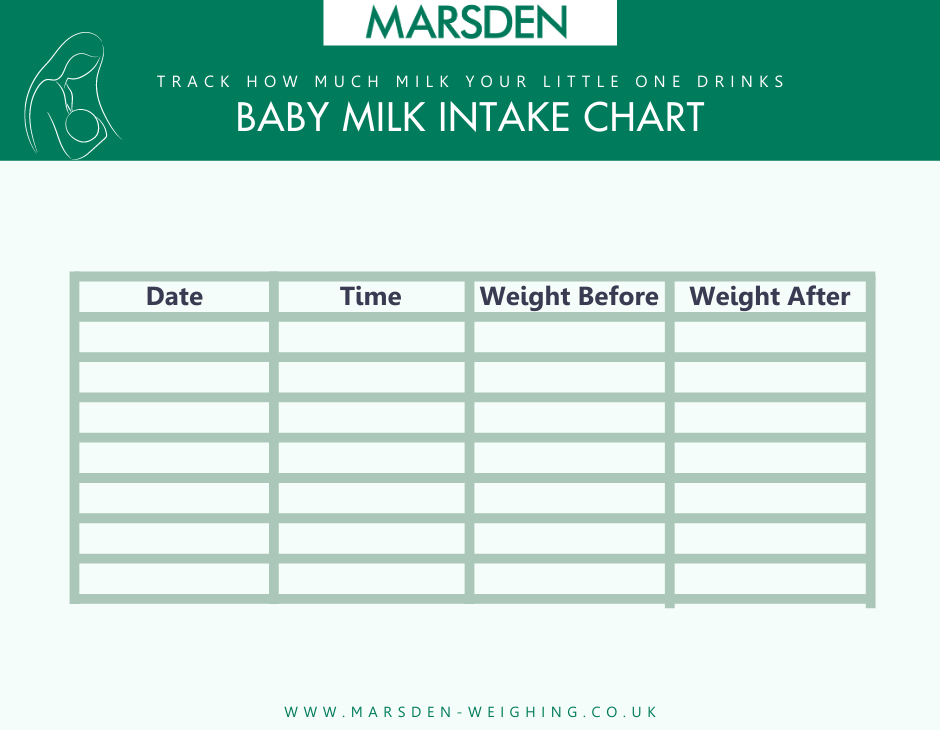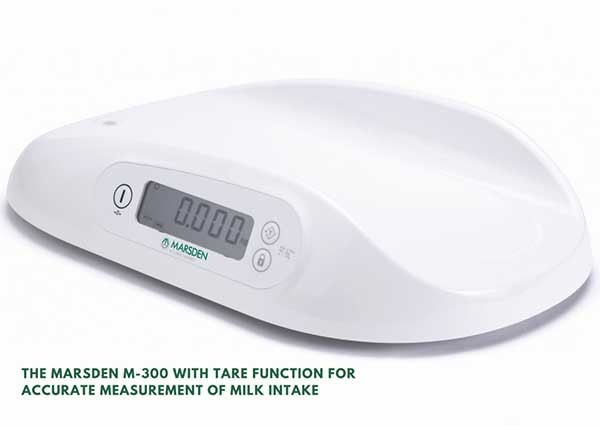How to Measure How Much Breastmilk a Baby Is Getting

It is perfectly normal for babies to lose 10% of their birth weight, yet for new mothers weight loss can still be a concern.
A drop in weight can of course be attributed to milk intake. For breastfeeding mums, working out how to measure how much breastmilk a baby is getting is tricky.
Mothers who bottle feed can measure milk intake just by monitoring what is left in the bottle following a feed. Without expressing, it is impossible for breastfeeding mums to judge their baby’s intake.
Knowing how often your baby should be breastfeeding can also be useful. Newborns tend to feel little and often as they have smaller stomachs. But this can be a strange concept for parents, who may think that their baby is constantly hungry.
Generally your baby’s weight should return to their birth weight within 14 days, so if this is not the case your midwife or health visitor will express any concerns and possibly refer you for additional feeding support.

Feeding support varies from area to area depending on where you live. A midwife may visit and support you at home until your baby regains weight. Or, you may need to visit a local centre.
There are also other ways to tell if your baby is not getting enough milk, such as concentrated urine or constipation.

How to Measure How Much Breastmilk a Baby Is Getting
As part of your additional support and baby’s assessment your midwife can weigh your baby before and after a feed to accurately ascertain how much your baby is getting during a typical feed.
This is known as a weighted feed.
Depending on your baby’s age and size, your healthcare professional will determine the optimum amount your baby should be receiving.
You could also weigh your baby at home yourself to monitor their progress. It is helpful to create a baby milk intake chart to track your baby’s weight until your next visit.
We've create an example breastmilk intake chart for you, which can be downloaded using this link. An image of the compact version for reference can be viewed below.

What Scales Should You Use?
It is important that you or your midwife uses a ‘Class III Approved’ (medical approved) weighing scale to ensure its accuracy when weighing your child. The M-300 is Marsden’s most popular baby scale, used throughout the NHS and around the world to weigh newborns.
The scale is accurate to 2g, making it one of the most accurate on the market - which is why it’s favoured by lactation consultants for monitoring milk intake.
The M-300 is light and portable, and features a Hold function (great for little babies who do not want to stay on a scale very long!) and a Tare function. The Tare function can be used to ‘tare’ off the weight of a blanket or clothing, so your baby can be weighed comfortably. Read our guide on Essential features in baby weighing scales.
It is also the Tare function that allows you to measure baby’s milk intake: simply place the infant on the scale, press Tare, feed and then place baby back on the scale. The weight reading shown is the weight gained since feeding.

For more information on how to effectively use the M-300 take a look at our handy video below.
For more information or help, the NHS provides online support and guidance. There you will also find helplines and downloadable material.
If you need to ask our team for help, advice or scale information, contact us here.
To purchase suitable weighing scales online go to our Baby Scales section. We also offer baby scales for use at home.
Further Reading
A new baby can be daunting, especially knowing how often that baby should be breastfeeding. That's why we put together this helpful guide, that takes you through many of the questions we've been asked about breastfeeding and the answers: How Often Should Your Baby Be Breastfeeding?
Another question we get asked often is 'how often should I get my baby weighed?'
It is recommended that you get your baby weighed every month during the first six months of its life. Find out why it's important to weigh your baby so often in this blog post.